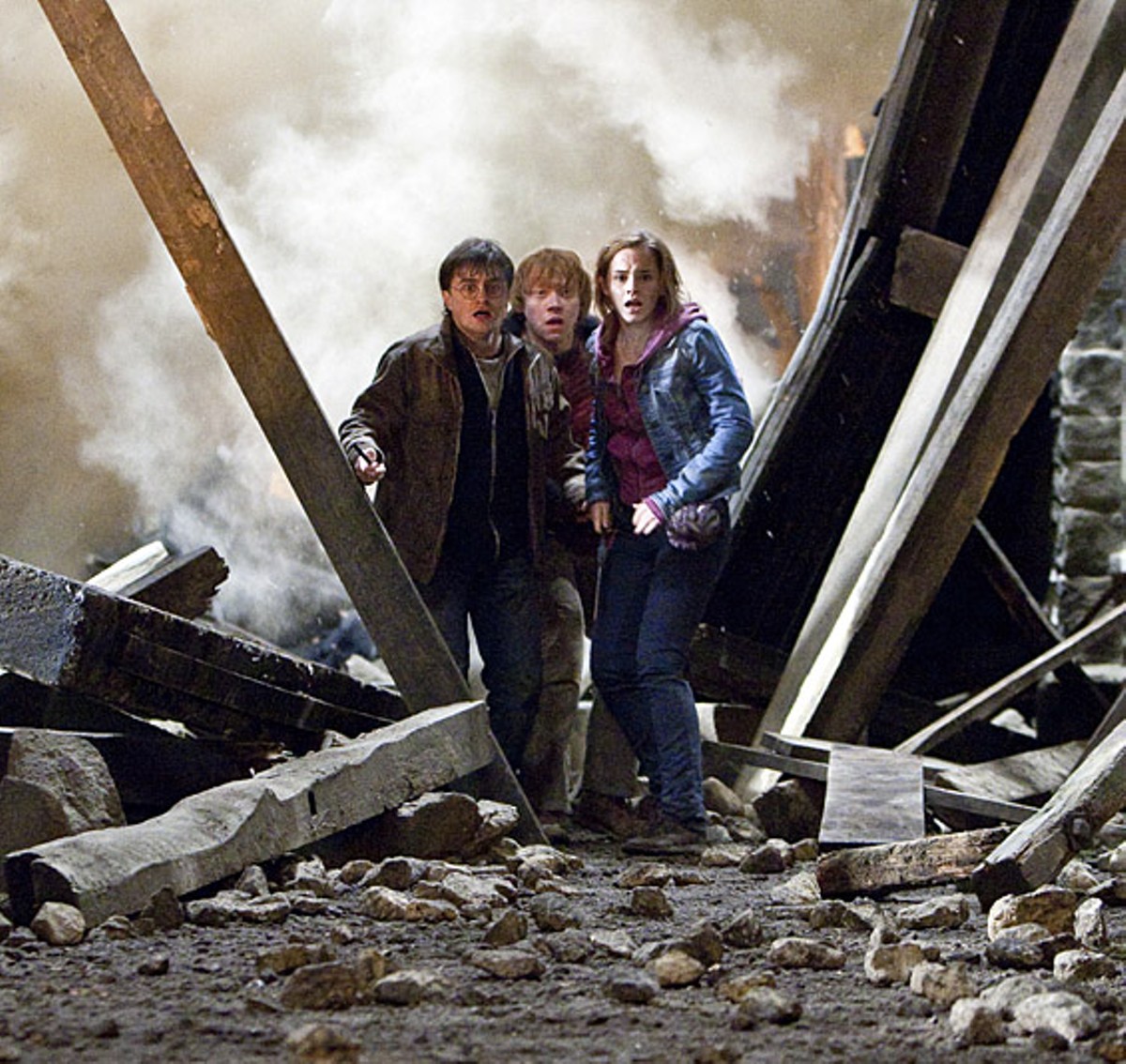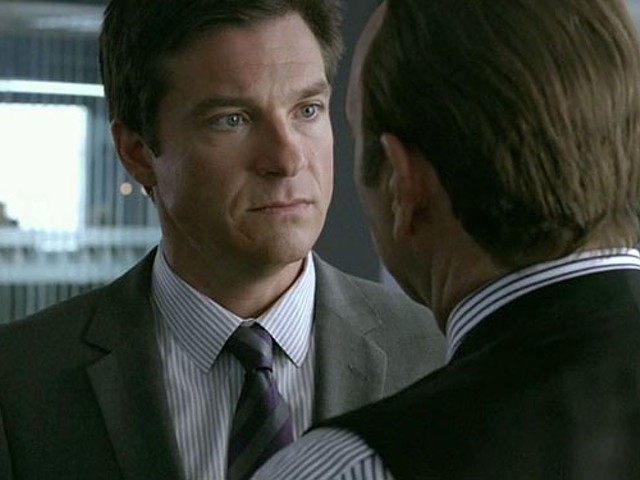After ten years, seven movies, six Defense Against the Dark Arts teachers, four directors, two dead parents, one grating house elf and incalculable amounts of CG wizardry, pubescent growing pains, budding romances and apocalyptic fire and brimstone, we've finally arrived: Bespectacled Harry Potter (Daniel Radcliffe) squares off against amphibian-faced Lord Voldemort (Ralph Fiennes) in Harry Potter and the Deathly Hallows: Part 2. It's a climax of truly epic proportions, not only for its narrative import but for the fact that it heralds the end of a beloved decade-long Warner Bros. franchise that has reaped billions (including for creator/author J.K. Rowling), mainstreamed gobbledygook terms such as "Muggle," turned its broom-flying sport quidditch into a real-world pastime and, to the illogical objections of some conservative commentators, celebrated youth, love and loss as inherently magical processes.
With a pop-culture goliath riding on its back, David Yates' adaptation of the second half of Rowling's last tome follows a Part 1 that could barely sustain itself as a stand-alone work. Yet Part 2 is a magnificent finale, one that pays ample justice to Harry's long-in-the-making showdown with He Who Must Not Be Named, a battle in which life and death, the past and the future, precariously hang in the balance. Before that confrontation can take place, though, Deathly Hallows must first chart Harry's attempts alongside best friends Ron (Rupert Grint) and Hermione (Emma Watson) to locate a collection of remaining Horcruxes — enchanted objects that house pieces of Voldemort's soul, whose destruction will make the Dark Lord mortally vulnerable.
That objective requires breaking into dragon-guarded Gringotts Wizarding Bank with the help of one of its goblin employees (Warwick Davis), as well as convincing a Hogwarts school ghost (Kelly Macdonald) to reveal the whereabouts of a hidden tiara. These quests pit treachery and self-interest against steadfastness and sacrifice, a fundamental series conflict that's embodied by Harry and Voldemort, the Christ and Satan at the center of Rowling's coming-of-age saga. Still, the propulsive film (penned, like all but one of its predecessors, by Steve Kloves) remains interested in such religious notions of martyrdom, fate and rebirth only insofar as they reflect the story's overriding celebration of friendship as an unbreakable bond even under the greatest of strains. Thus this installment's reunion vibe, heavy on cameos and returns to familiar locales, isn't merely a concession to demanding Potterphiles, but rather a closing expression of Rowling's belief in the primacy of camaraderie and devotion in the face of annihilation.
Yates' latest boasts an almost classical attention to mood and composition, and performance truly trumps spectacle especially with regards to Radcliffe, completing Harry's transformation with conviction and heart.
That development has naturally been mirrored by the series as a whole, whose early kid-friendly adventures are such a far cry from this film's black-night doom-and-gloom that it's like a punch to the stomach. The loss of innocence is Harry's true destiny, and as the movies have moved from juvenile wonder, to the teenage awkwardness, confusion and anger, what emerges is a multifaceted view of getting older, something jarring, frightening and liberating.
Deathly Hallows' revelations of allegiance, deaths of cherished characters and panoramas of warfare can't fully compensate for a conclusion that hinges a tad too heavily on schematic and perfunctory magic-world laws. Yet such a miscue is ultimately negligible, for the film recognizes, with a maturity and sincerity that have become the franchise's hallmarks, that love and loyalty are the most vital, powerful and real in times of true darkness.






